They told me last year, before the Democrats’ switcheroo, that if I voted for Joe Biden we’d end up with a president who’s too frail to do the job. And they were right.
Well, not really. Not yet.
The evidence is thin that Donald Trump’s health is so poor that he can no longer carry out his duties, but the evidence that it’s declining is growing. Which leaves We the People in the very familiar position of wondering whether we’re being told the full truth about the condition of the wizened grandpa we elected.
A message from The Dispatch
Honor and Patriotism at the Alamo
Lt. Col. William Barret Travis, commander of the Alamo garrison, knew his history. Thomas Jefferson’s words and legacy weighed heavily. Independence: It evoked the power of heritage. It made Travis and his followers not mere adventurers, but soldiers in a righteous cause. He was unaware that delegates had already done the deed. Alamo defenders never knew, but they would have rejoiced at the news. A republic—now that was something worth dying for.
It’s so familiar, in fact, that many Very Online types spent the holiday weekend reenacting the Bizarro World version of a debate that was common on social media in 2023 and 2024. Left-wing activists shared images of our extremely old president showing his age in public, spinning themselves up into a frenzy about a health cover-up, while right-wing activists scoffed at their supposed paranoia.
Those of us trying to assess the matter objectively are accordingly trapped between “BlueAnon” conspiracy theories, which at one point this week alleged that Trump had actually died, and the painful lesson of Biden’s term—that administrations can and do suppress the truth about an enfeebled president’s health to protect him politically.
How debilitated has Trump become, really?
As a non-paying reader, you are receiving a truncated version of Boiling Frogs. You can read Nick's full newsletter by becoming a member here.
If you want to believe that he’s at death’s door and that the White House is frantically trying to hide that fact, head over to Twitter and plunge into the swampy theories about secret strokes, elaborate photo-doctoring, and official disinformation. But if you want to believe he’s fit as a fiddle, you’ll need to contend with everything that journalist Garrett Graff lists here—the “cankles,” the bruising on his hands (both of them, not just the one he shakes with), the occasional nodding off during meetings, the sporadic limp, and the uncharacteristic low media profile that he kept between Tuesday of last week and this afternoon.
“Trump is dead!” was silly. “NEVER FELT BETTER IN MY LIFE” is also silly. And this administration deserves even less benefit of the doubt than the Biden administration did with respect to candor about the boss’s health: Not only is MAGA a monarchy, the king has been known to take extreme measures to suppress the truth about his physical condition.
I’m skeptical that he’s in dire straits, but I’m also unwilling to repeat my mistake during the last presidency of assuming that opposition activists are mostly wishcasting in suspecting a cover-up. And coincidentally or not, Trump and his vice president have each spoken publicly recently about the prospect of him dying in office and what might come next. (For both of them.)
What would the rest of his term look like if his health continues to decline? What might J.D. Vance’s presidency look like if he’s suddenly thrust into the job?
Will we know?
A threshold question to ask is whether we’ll even know if the president’s health slips.
We will if the evidence spills out under a brilliant spotlight, as happened to Biden during last summer’s presidential debate, but it might not. It might be merely “suggestive,” as it is now, trickling out in dribs and drabs yet remaining within the zone of plausible deniability. A new bruise here, a slight stumble there, a daily schedule that gradually grows lighter: Is that evidence of illness or just daily life when you’re almost 80?
“If something’s up, the press will expose it,” you might say, although I’m not sure why you would. We’ve had precious little reason since January 2021 to believe that reporters are capable of penetrating a conspiracy to conceal the president’s poor health.
It’s true that Trump’s first administration leaked like a sieve, but that’s because he was surrounded by old-guard Reaganites who had little use and even less respect for him. The sort of loyalists who serve him now should be better at keeping secrets that could do him real political damage. If Democrats could suppress the truth about little-loved, little-feared Joe Biden, Republicans can surely suppress it about the GOP’s Stalin.
Besides, even during his first term, Trump was quite successful at keeping a lid on medical issues.
Another problem is the culture of fear that the president has created. Fear also helped keep mouths shut during Biden’s presidency, no doubt, but in that case I suspect the core phobia was losing access to the White House. A Democratic source who whispered to the press about dementia might worry about being ostracized by party leadership; a reporter who published the information might worry about being shut out by otherwise friendly sources within the administration.
The fear Trump inspires is qualitatively and quantitatively different, as there’s simply no telling how far he might go to punish someone who exposed his health problems. Partisan ostracization is the least of it: A source might find his federal privileges summarily revoked, his business blackballed by the federal government, and possibly the FBI suddenly sniffing around his dealings. A newspaper or online outlet that published the information would likely be sued and squeezed for a shakedown settlement, or penalized in some more hair-raising way through abuse of executive power.
That might be worth risking if a reporter had truly explosive evidence of the president’s illness, but if it’s something of the “he fell in the Oval Office last week” variety, how much pain is a publisher reasonably willing to absorb to run that?
At this point you’re probably thinking, “The press covered for Biden because it wanted Democrats to win, and it’ll expose Trump for the same reason,” and there’s some truth to that. The average journalist’s rooting interests in revealing presidential infirmity are surely different now than they were in early 2024. And as a matter of basic professional pride, the media won’t want to be duped by the White House on an in-plain-sight story about the chief executive’s decline again.
But in that case, how to explain “the national press corps’ near-total lack of apparent interest in the president’s health” right now, as Graff put it?
Maybe he’s underestimating the amount of attention being paid to the topic, as it’s hard to quantify “near-total.” Or maybe he’s comparing apples to oranges in detecting lesser interest in Trump’s physical health than in Biden’s cognitive decline. A problem with the president’s brain is a more dire crisis for government than a problem with his “cankles,” no?
But I wonder if some reporters, ever mindful of suspicions about liberal media bias, have decided that it might further shake public faith in their industry if they went full bore on exposing Trump’s health challenges after conspicuously failing to expose Biden’s. That’s not to imply that they’d turn down a bombshell scoop about a serious health problem bedeviling the president, but how do they run breathless stories about circumstantial trivia like hand bruises after having been slower than many of their own readers to acknowledge Joe Biden’s senescence?
Their failure to expose the last president, ironically, might make them more, not less, gun-shy about exposing the current one absent compelling proof. Secret evidence of Trump’s condition could remain secret for longer than we assume.
Decline and death.
But let’s assume that he is declining. He’ll be 80 next year; it would be weird, frankly, if he weren’t.
A president who’s declining physically might turn one of two ways politically. Beset by health issues, he might grow less aggressive on policy as he becomes preoccupied with his own condition. An authoritarian like Trump would likely turn the other way, though: Forever consumed with needing to project “strength,” and fearful of how his enemies might challenge him in his vulnerable state, he may try to compensate for his physical weakness by becoming more domineering.
More tariffs. More troops in American cities. More masked secret policemen disappearing immigrants off the streets. More baroque claims of executive power. And, perhaps, new demands that Republicans in Congress kill the filibuster and/or pack the Supreme Court to protect the MAGA policy project.
Approaching the end, the president would lean hard into legacy-building with less care than before for whether his means were legal. The larger his own mortality looms in his imagination, the less he’d have to lose by doing so. Armchair psychologists have kicked around similar theories to explain why his friend Vladimir, after more than 20 years in power, decided to invade Ukraine: Putin has been dogged for ages by rumors of major health problems and may have felt that it was now or never for his most audacious fascist gambit.
Even if I’m wrong and an ailing Trump turned out to be less focused on policy, his deputies might well grow more domineering in his de facto absence. Many of them, from Robert F. Kennedy Jr. to Kash Patel to Pete Hegseth to Russell Vought, are arguably bigger postliberal cranks than the president is and could be tempted to assert themselves as he retreats from governing. Or, perhaps, they’d feel obliged to behave as ruthlessly as possible to try to reassure him that his government hasn’t “weakened” as he focuses on his health. The first Trump administration, stocked as it was with Reaganites, would have behaved more responsibly in a situation like that. The second Trump administration points the other way.
As for the invertebrates in Congress, the president’s declining health might encourage them to reassert some of their own authority. If a leadership vacuum on the right is about to open up, self-interest should incentivize Republicans in the House and Senate to try to fill some of it themselves—if for no other reason than to claw back a bit of the institutional dignity they’ve forfeited during the Trump years. I can imagine a Bill Cassidy, say, growing less willing to rubber-stamp nominees like Kennedy once he has reason to believe that the president won’t be around to threaten him much longer.
But, pessimist that I am, I can imagine it the other way too. If Trump really does go for broke in authoritarian legacy-building—and, in particular, if the Republican base comes to understand that he’s in ill health—then members of Congress who resist his wishes might be guilty of a supreme heresy. How dare any right-winger obstruct the president’s dying attempt to consolidate power and usher in a thousand-year golden age of unquestioned GOP rule?
That’s the “Trump in decline” scenario. What happens to his agenda if he actually dies?
For a few reasons, I would expect President Vance to govern—at least until 2029—by the principle that his policies should be at least as MAGA as Trump’s were.
That means firing Jerome Powell in hopes of seizing control of the Federal Reserve and not firing Bobby Kennedy as he goes about destroying American public health. It means deploying the National Guard to Chicago and New York if Trump hasn’t gotten around to it already. It means keeping the current tariffs in place and, if anything, going bigger in trying to expand ICE. It means potentially defying Supreme Court rulings, something Vance has explicitly condoned doing.
I doubt he’d end up breaking with Trump on a single domestic policy. If there’s a break, it will be on foreign policy, where Vance would aim to please populists by being more dogmatically isolationist than the current president is. No more bombing Iran and, perhaps, no more weapons sales to Europe for Ukraine. Maybe no more foreign aid to Israel either, although Vance has always made a special exception to his “America First” outlook for the Jewish state given its popularity on the right.
All of this would be geared toward making a simple point to Republican voters weighing their options in 2028—that Vance is the true and rightful heir to Trump’s nationalist legacy and, if elected, will deliver the third term that fate (and the 22nd Amendment) made impossible.
The base doesn’t need Donald Trump Jr. or Tucker Carlson. J.D. can do it. And the best way to prove that he can do it is by actually doing it for the remainder of Trump’s second term, replicating the president’s domestic agenda while tilting a bit more Lindberghian abroad to impress the hardcore postliberals on the right who might otherwise fear he’s too soft.
The “replica” approach would also help Vance assert his authority over congressional Republicans, who won’t fear him nearly as much as they do Trump. If anything, they’ll be eager to defy him to test how he responds and how grassroots Republicans react. Lacking a cult of personality of his own and the ability to turn every policy dispute into an “us and them” litmus test, Vance’s best play will be to hide behind his predecessor’s legacy: As long as he continues to champion policies that Trump himself championed, congressional Republicans who resist him will be showing disloyalty to our late, great president, not to Vance.
That could get the base on his side quickly against Congress. And once the base is on his side, the 2028 primary becomes a lot easier.
Events, dear boy, events.
The problem is that sometimes things happen. And certain things happening could make life difficult for accidental President J.D. Vance.
Take Trump’s tariffs. He won’t want to touch those for the reasons I’ve explained. If anything, he might go bigger on them. But the economy gets a say in policy too, and a bad economy in 2028 would hurt Vance’s chances of being elected more than being insufficiently Trumpy would.
He might feel he has no choice but to lift some or all of the tariffs, removing a drag on growth but opening himself up in the process to attacks from Tuckerites that he’s a “globalist” in nationalist clothing who’s betrayed Trump. If the economy starts to roar, Vance can probably shake that criticism off and win anyway. But if it doesn’t, populists will accuse him of not only abandoning Trumpism but of having rescinded the very policy—tariffs—that surely would have delivered prosperity if only Vance had had the nerve to stick with them for a little bit longer.
China could also make a move on Taiwan, believing that Vance’s dogmatic “America First-ism” would lead him not to defend the island from attack. Postliberals might like that idea, but the many hawks who still identify as Republican will not and would draw conclusions about Vance’s “weakness” from it. I would not bet my life that rolling over for Chinese military aggression would be a winner in a GOP primary, even if it’s properly Lindberghian in spirit. So maybe President Vance would feel obliged to intervene after all.
There’s also a scenario in which J.D. ends up in a political sour spot even if he does stick faithfully to Trump’s policies.
Never Trumpers like me have long entertained a theory that most right-wingers don’t care much about the president’s agenda beyond immigration. Whatever he thinks is best on policy is usually fine with them. What they care about is the show that he’s turned politics into—simple “good guys versus bad guys” narratives a la pro wrestling. Most Americans don’t like his policies, actually; it’s his charismatic demagoguery that appears to buoy up his overall job approval to the mid-40s.
If that theory is correct, what do you suppose would happen to a president like Vance who retains Trump’s unpopular platform but can’t emulate his charisma?
Maybe nothing would happen. It could be that President Vance, thrust into office unexpectedly at a tender age and compos mentis to a degree not seen in a chief executive since Barack Obama, would prove to be more popular than expected. The country writ large might appreciate his youth, intelligence, and the fact that he’s less goblin-like in his fascism than Trump; the right might rally around him for no grander reason than the eternal quest to own the libs at the national level requires that they unite. He could start off with a reasonably robust honeymoon period.
But boy, I dunno. Bad postliberal policy minus the “greatest show on Earth” freak-show appeal of Trump sounds like a grim trajectory. And insofar as Vance might be tempted to moderate to change that, his populist friends in “fundamentalist MAGA” would browbeat him mercilessly not to do so lest they lose the degree of control over the GOP that they’ve won over the last 10 years. He might be stuck in the sour spot.
Whether Trumpism without Trump is popular is the greatest political mystery of our age. If the doomsayers about the president’s health are onto something, that mystery may be solved sooner than we think.
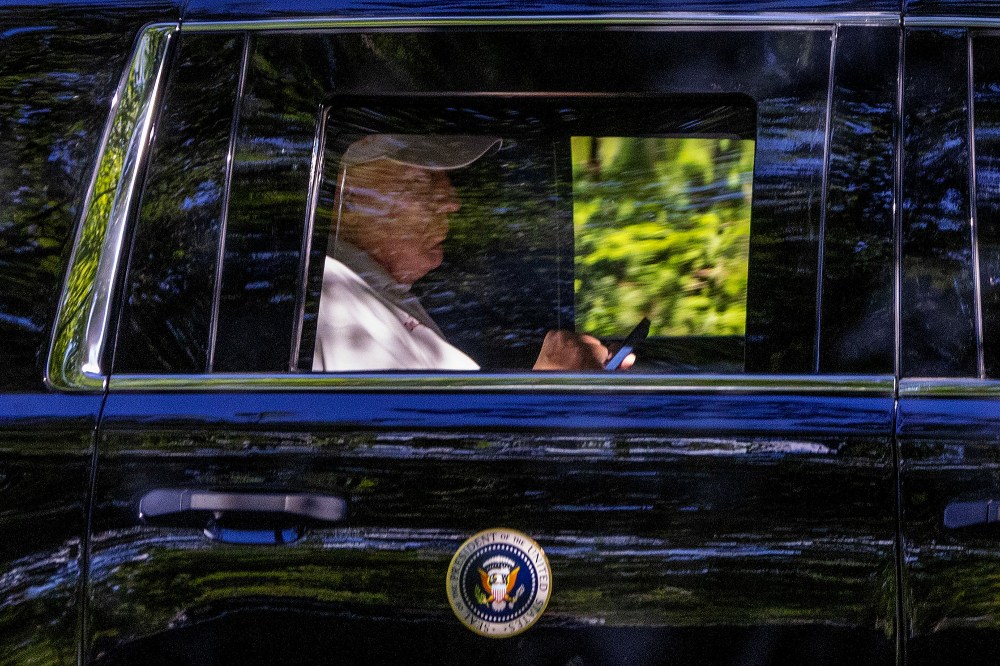



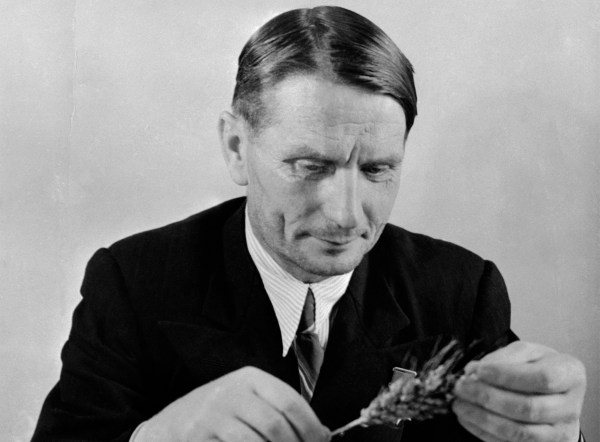

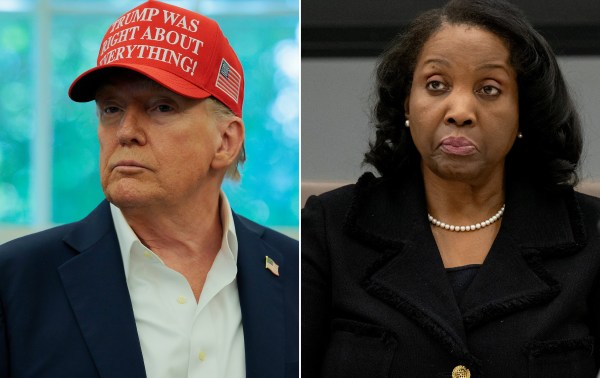
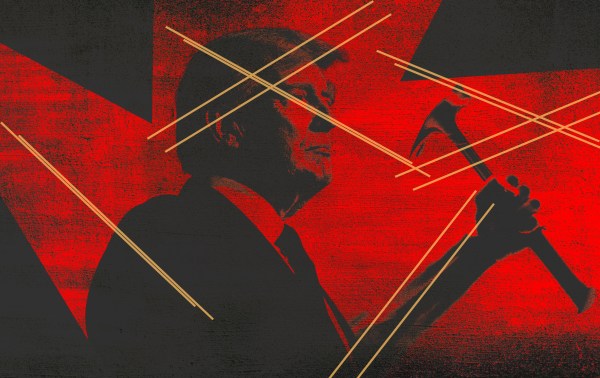
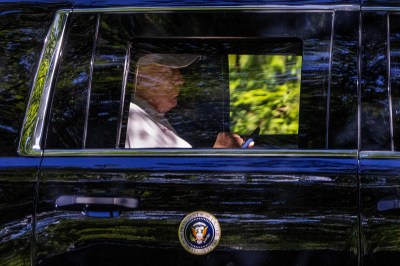
Please note that we at The Dispatch hold ourselves, our work, and our commenters to a higher standard than other places on the internet. We welcome comments that foster genuine debate or discussion—including comments critical of us or our work—but responses that include ad hominem attacks on fellow Dispatch members or are intended to stoke fear and anger may be moderated.
With your membership, you only have the ability to comment on The Morning Dispatch articles. Consider upgrading to join the conversation everywhere.